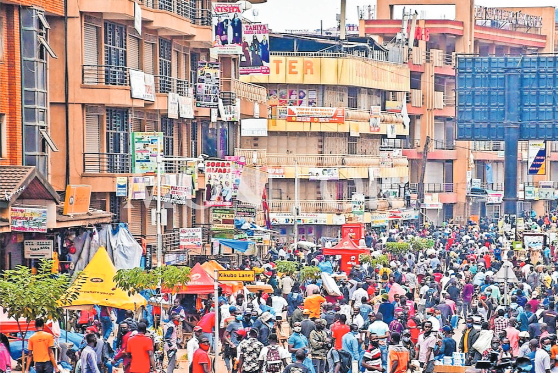Prime
Drawing the line between politics, army

Brian Mukalazi
What you need to know:
- The African Union (AU), together with the regional blocs and international community, have generally remained silent and non-responsive to most of the issues spelt out above
In just five months, Africa has experienced three violent but successful military takeovers in the countries of Mali, Chad and Guinea, where new leaders have ascended to power from their respective militaries.
First came Mali, where on the night of May 24, the army led by then Vice President Col Assimi Goïta captured and detained President Bah N’daw and Prime Minister Moctar Ouane.
Goïta later announced that N’daw and Ouane had been stripped of their powers and that new elections would be held in 2022.
Then in April, following the death of Chadian President Idriss Deby, the army installed his 37-year-old son, General Mahamat Idriss Deby, as the country’s interim president.
The army also dissolved the National Assembly and the government, and abrogated the constitution but promised to hold elections within eighteen months. This was described by political opponents as a “dynastic coup”.
And most recently, in Guinea, on September 5, a group of soldiers led by the flamboyant Colonel Mamady Doumbouya - the Special Forces Commander– captured the presidential palace and overthrew President Alpha Condé. The 41-year-old Doumbouya claimed that government “mismanagement” prompted their actions.
Historically, Africa has never been a stranger to military coups and takeovers. In fact, it is estimated that there have been at least 80 successful coups in Africa in the past four decades and with more than twice the number of unsuccessful coup attempts.
Today, almost more than a half of African countries are still headed by military men, either as presidents or prime ministers. It is, therefore, clear that the two subjects of politics and the army” continue to be closely interlinked for many countries on the African continent.
To some observers, military intervention in African politics remains one of the central challenges facing the continent currently. It has resulted in a variety of upheavals of differing magnitudes, which have deepened Africa’s misery and underdevelopment.
Col Doumbouya, the leader of Guinea’s recent coup, cited poverty and endemic corruption as some of the reasons for overthrowing 83-year-old Alpha Conde. Similarly, the soldiers who led the coup in Mali claimed that theft and bad governance practiced by the previous regime prompted their actions.
But here’s the problem: Most of these militia or guerrilla groups, once they secure their grip on power, often turn and resemble the dysfunctional predecessors they deposed. Promises of holding national elections are usually made but such promises rarely materialise and if they do, the elections are far from “free and fair”.
In her new book, Do Not Disturb, Michela Wrong shares similar sentiments: “Most of these rebel movements fail to make the transition to civilian governments…The truth is usually simpler: no transition is attempted at all: the habits, mindset, and structures of a military guerrilla movement simply shift wholesale from the forest dugout to the capital city”.
The African Union Peace and Security Council in 2014 noted that unconstitutional changes of African governments originated from: “Deficiencies in governance, Greed, selfishness, mismanagement of diversity, failure to seize opportunities, marginalisation, human rights violations, unwillingness to accept electoral defeat, and manipulation of constitutions”.
However, the African Union (AU), together with the regional blocs and international community, have generally remained silent and non-responsive to most of the issues spelt out above. Sometimes their actions or inactions appear like a protection of incumbency and the status quo.
What is clear here is that these military takeovers do not only threaten human lives, but they also pose serious threats to the democratic gains many African countries have made in the recent past.
Therefore, it is incumbent on the AU, individual governments, regional blocs and the international community to ultimately evaluate their root causes and devise the right preventive or corrective strategies to cope with them.
Mr Mukalazi is the country director of Every Child Ministries Uganda.
[email protected]




